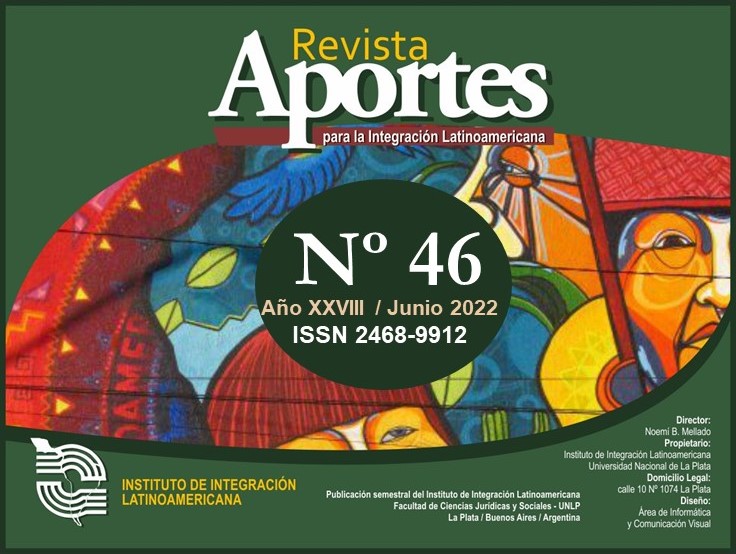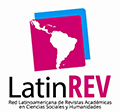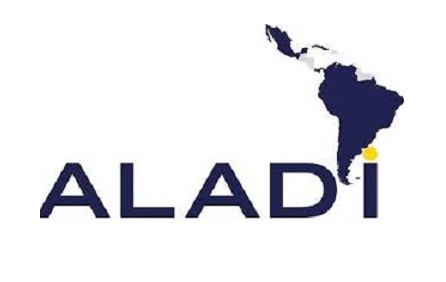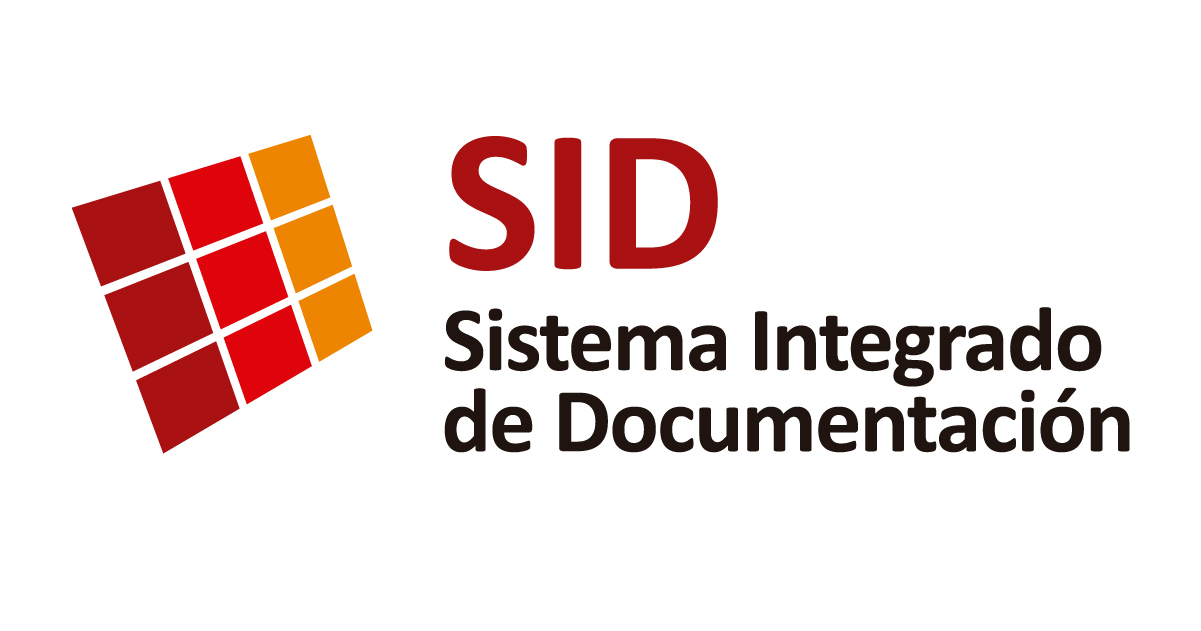Indiana Jones, la Doctrina Monroe y algunos apuntes sobre la identidad continental estadounidense
DOI:
https://doi.org/10.24215/24689912e042Palavras-chave:
Doctrina Monroe, panamericanismo, Hiram Bingham, Hispanoamérica, historia de los Estados UnidosResumo
En este artículo exploratorio intentaremos detenernos en el episodio poco conocido del debate sobre la Doctrina Monroe generado por Hiram Bingham en los Estados Unidos entre 1913 y 1914, en las vísperas de la Primera Guerra Mundial y con el trasfondo de la Revolución Mexicana. Procuraremos demostrar que lejos de ser un episodio aislado protagonizado por un miembro reconocido de la academia, la discusión en torno a la doctrina Monroe en el bienio 1913-1914, constituye el último paso de la evolución de un sentimiento comunitario estadounidense hacia la generación de una identidad continental. Antes de definirse como potencia global en la segunda postguerra, o como parte de Occidente a partir del avance de China desde fines del siglo XX, Estados Unidos se definió a sí misma como una nación americana.
Referências
Armitage, D. (1992). Christopher Columbus and the Uses of History. History Today, 42(5), 50-55. https://scholar.harvard.edu/armitage/publications/christopher-columbus-and-uses-history
Bartosik-Vélez, E. (2014). The Legacy of Christopher Columbus in the Americas. New Nations and a Transatlantic Discourse of Empire. Vanderbilt University Press. https://library.oapen.org/handle/20.500.12657/46331
Bennett, C. (2001). In Search of Jesus: insider and outsider images. Continuum.
Bingham, H. (1913). The Monroe Doctrine an Obsolete Shibboleth. Yale University Press.
Bryne, A. (2020). A Shibboleth and a War. In The Monroe Doctrine and United States National Security in the Early Twentieth Century. Security, Conflict and Cooperation in the Contemporary World (pp. 93-129). Palgrave Macmillan.
Chadwick, F. (1914). The Present Day Phase of the Monroe Doctrine. The Journal of Race Development, 4(3), 306-318. https://www.jstor.org/stable/i29737993
Dranginis, S. (2021). John Holladay Latané and American Diplomatic History in the Era of the Lost Cause. [Theses, University of South Carolina]. https://scholarcommons.sc.edu/senior_theses/407/
Fitz, C. (2017). Our Sisters Republics. The United States in an Age of American Revolutions. Liveright.
Gilderhus, M. (1983). Wilson, Carranza, and the Monroe Doctrine: A Question in Regional Organization. Diplomatic History, 7(2), 103-115. https://www.jstor.org/stable/i24911376
Gilderhus, M. (1986). Pan American Visions: Woodrow Wilson in the Western Hemisphere, 1913-1921. University of Arizona Press.
Heaney, C. (2011). Cradle of Gold: the story of Hiram Bingham, a real-life Indiana Jones, and the search for Machu Picchu. St. Martin's Publishing Group, X-XIV.
Holmes, W. (1909). The First Pan-American Scientific Congress, Held in Santiago, Chile, December 25, 1908-January 6, 1909. Science, 29(742), 441-448. https://www.science.org/toc/science/29/742
Humphreys, R. (1956). William Spence Robertson 1872-1955. The Hispanic American Historical Review, 36(2), 263-267. https://www.jstor.org/stable/i343135
Karnes, T. (1979). Hiram Bingham and His Obsolete Shibboleth. Diplomatic History, 3(1), 39-57. https://www.jstor.org/stable/24909954
Latané, J. (1914a). The Effects of the Panama Canal on Our Relations with Latin America. The Annals of the American Academy of Political and Social Science, 54(1), 84-91. https://journals.sagepub.com/toc/anna/54/1
Latané, J. (1914b). Reseña de Libro [The Monroe Doctrine: An Obsolete Shibboleth. By Hiram Bingham. (New Haven: Yale University Press. 1913. Pp. viii, 154]. The American Political Science Review, 8(2), 330-331. https://www.cambridge.org/core/journals/american-political-science-review/issue/D37FE6B007655CE9A98 86CBCA6F058D5
Martin, P. (1926). Latin America and the League of Nations. The American Political Science Review, 20(1), 14-30. https://www.cambridge.org/core/journals/american-political-science-review/issue/4D0C56E6588597038B3398EEB2B4CDD8
Pazos Pazos, M. y Pérez Santos, R. (2006). El centenario de la independencia en las revistas de las principales instituciones hispanoamericanistas españolas. En G. Dalla Corte, A. Llus i Vidal-Folch, F. Camps i Plana (Coords.), De las independencias al Bicentenario: trabajos presentados al Segundo Congreso Internacional de Instituciones Americanistas (35-46). Casa AméricaCatalunya. https://americat.barcelona/uploads/20120305/De_las_independencias_al_bicentenario_.pdf
Perkins, D. (1967). Polk and the Monroe Doctrine. The Virginia Quarterly Review, 43(1), 146-149. https://www.jstor.org/stable/i26441339
Perkins, D. (1933). The Monroe Doctrine 1826-1867. Johns Hopkins Press.
Perkins, D. (1922). Europe, Spanish America and the Monroe Doctrine. The American Historical Review, 27(2), 207-218. https://www.jstor.org/stable/i304907
Rahn Phillips, C. y Phillips, W. (1992). Christopher Columbus in United States. Historiography: Biography as Projection. The History Teacher 25(2), 119-135. https://www.jstor.org/stable/494269
Robertson, W. (1915). South America and the Monroe Doctrine, 1824-1828. Political Science Quarterly, 30(1), 82-105. https://www.jstor.org/stable/2141847
Robertson. W. (1912). The Monroe Doctrine Abroad in 1823-24. The American Political Science Review, 6(4), 546-563. https://www.cambridge.org/core/journals/american-political-science-review/issue/16F7F31516000617DFBD10CBD980BCCD
Root, E. (1914). The real Monroe Doctrine. Proceedings of the American Society of International Law at Its Annual Meeting (1907-1917), 8, 6-22. https://www.jstor.org/stable/25656494
Rossi, C. (2019). Whiggish international law: Elihu Root, the Monroe Doctrine, and International Law in the Americas (pp.123-152). Brill Nijhoff.
Salvatore, R. (2016). Disciplinary Conquest: U.S. Scholars in South America, 1900–1945. Duke University Press.
Salvatore, R. (2003). Local versus imperial knowledge: reflections on Hiram Bingham and the Yale peruvian Expedition. Views from South. https://www.academia.edu/2098563/Local_versus_imperial_knowledge_reflections_on_Hiram_Bingham_and_the_Yale_peruvian_Expedition
Salvatore, R. (1998). The Enterprise of Knowledge: Representational Machines of Informal Empire. In G. Joseph, C. Legrand, y R. Salvatore (Eds.), Close Encounters of Empire: Writing the Cultural History of U.S.-Latin American Relations (pp.69-106). Duke University Press.
Inman, S. y Woods, K. (1967). "Imperialistic America": a Landmark in the development of U.S. Policy toward Latin America. Inter-American Economic Affairs, 21, 55-72.
Scarfi, J. (2016). In the Name of the Americas: The Pan-American Redefinition of the Monroe Doctrine and the Emerging Language of American International Law in the Western Hemisphere, 1898-1933. Diplomatic History, 40(2), 189-218. https://www.jstor.org/stable/26376746
Séphocle, M. (2002). Germany’s Challenge to the Monroe Doctrine. Pouvoirs dans la Caraïbe, 13, 177-190. https://journals.openedition.org/plc/298?lang=es
Wheless, J. (2014). What countries benefit by the Monroe Doctrine? Proceedings of the American Society of International Law at Its Annual Meeting (1907-1917), 8, 171-180. https://www.jstor.org/stable/25656501
Downloads
Publicado
Edição
Seção
Licença
Copyright (c) 2022 Jorge Troisi Melean

Este trabalho é licenciado sob uma licença Creative Commons Attribution-NonCommercial-NoDerivatives 3.0 International License.
Obras bajo licencia CC-BY-NC-ND
Esta licencia no permite la generación de obras derivadas ni hacer un uso comercial de la obra original, es decir, sólo son posibles los usos y finalidades que no tengan carácter comercial.


































